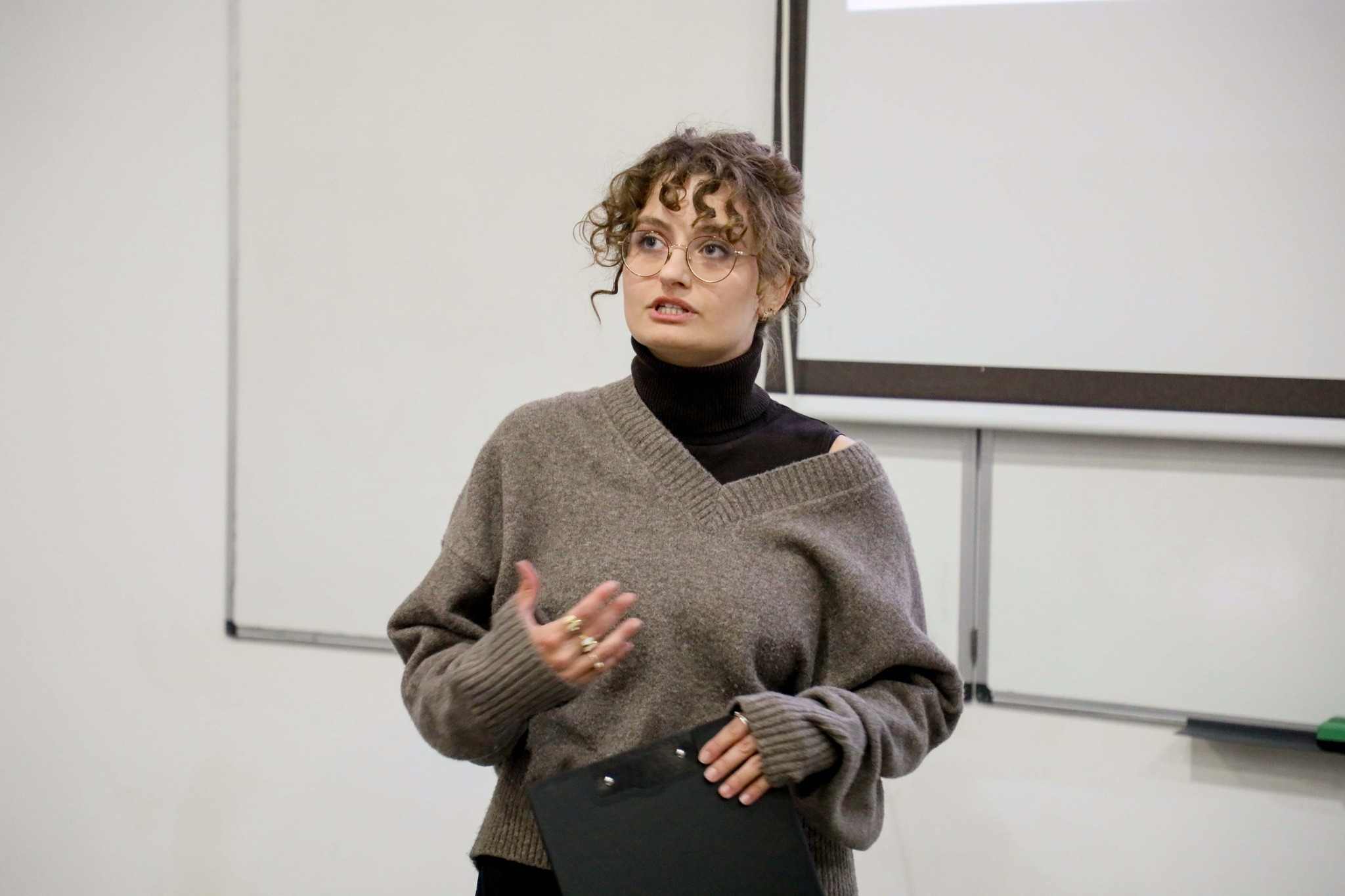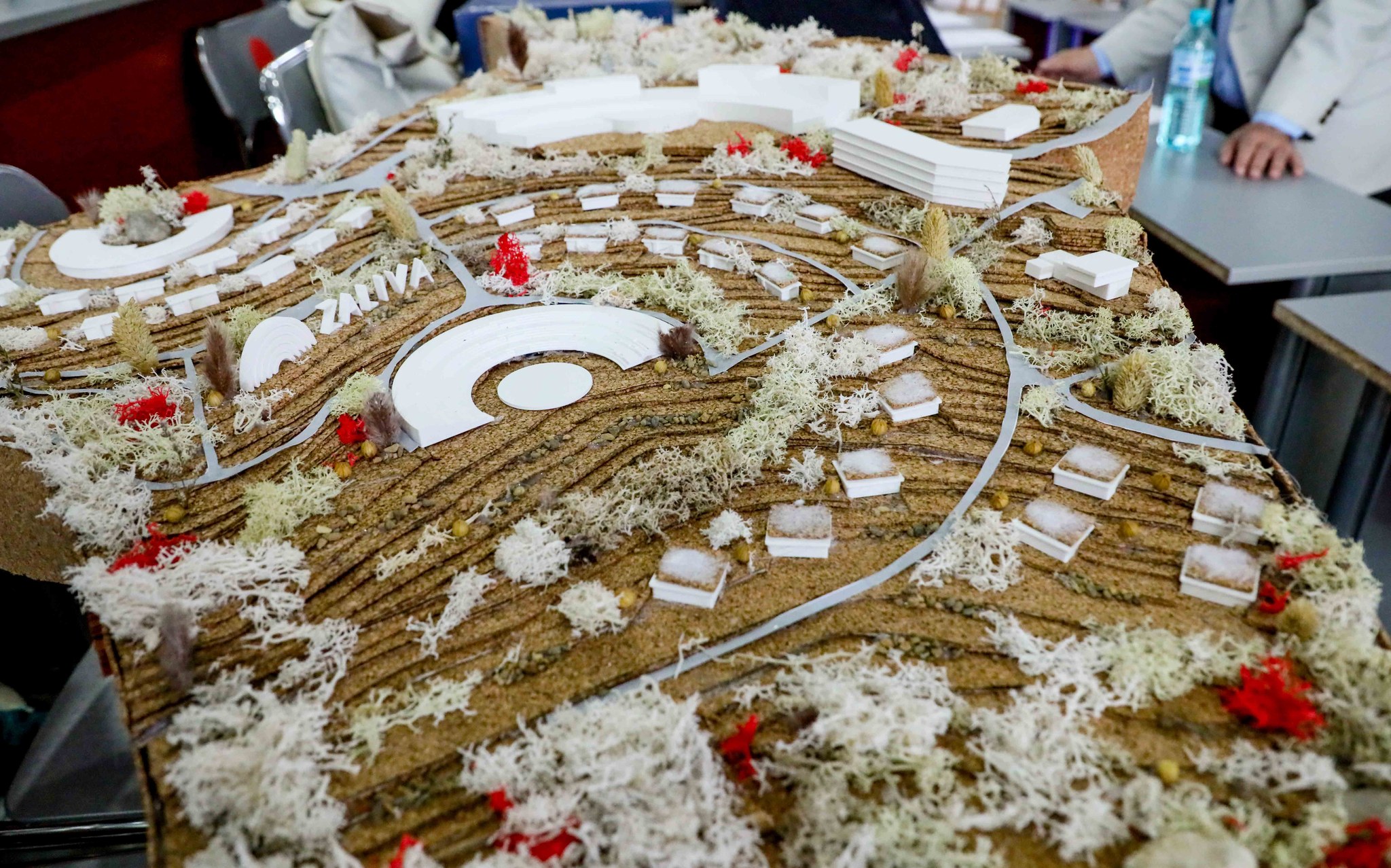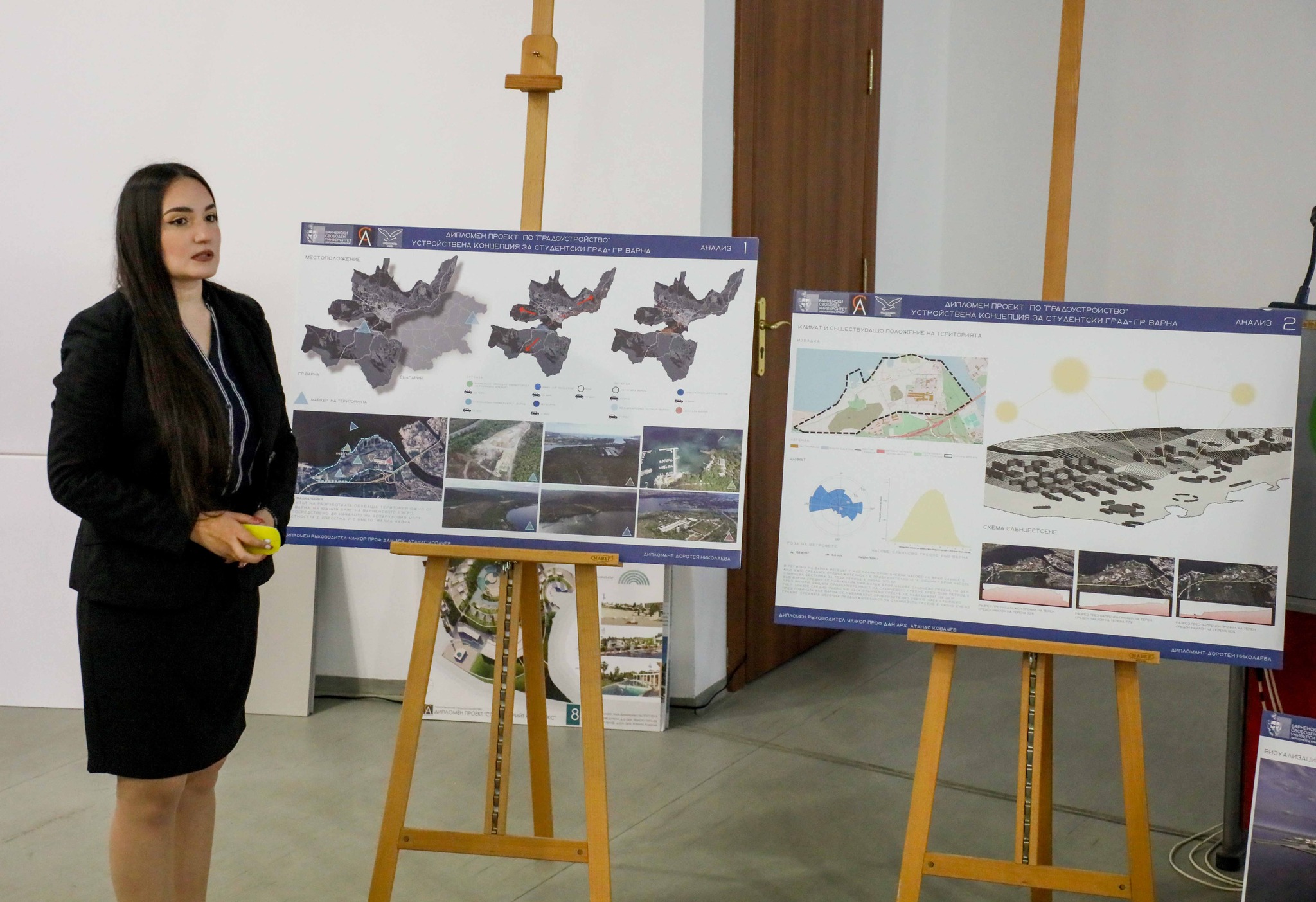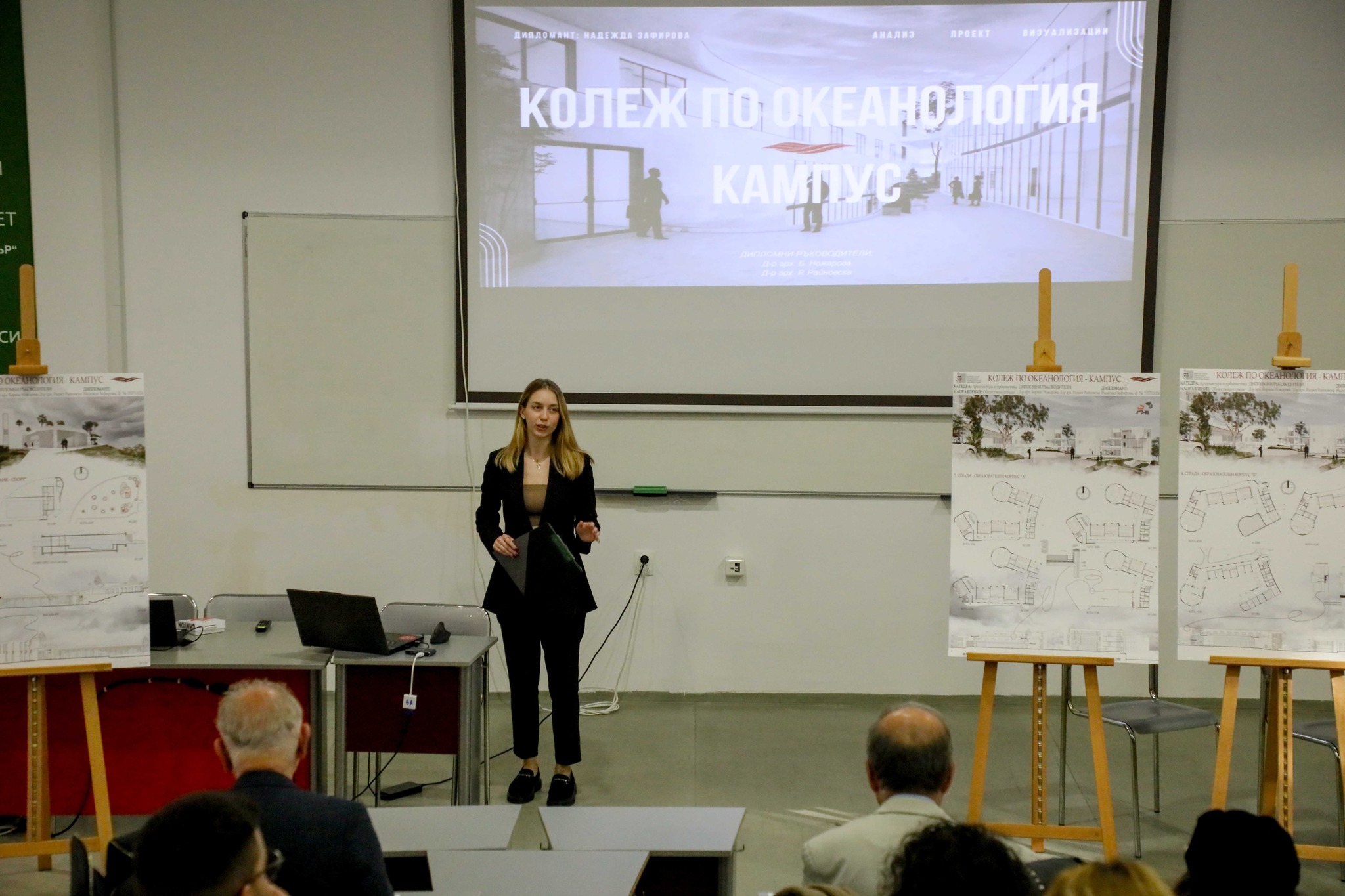EIGHT NEW ARCHITECTS DEFENDED THEIR THESES AT VARNA FREE UNIVERSITY
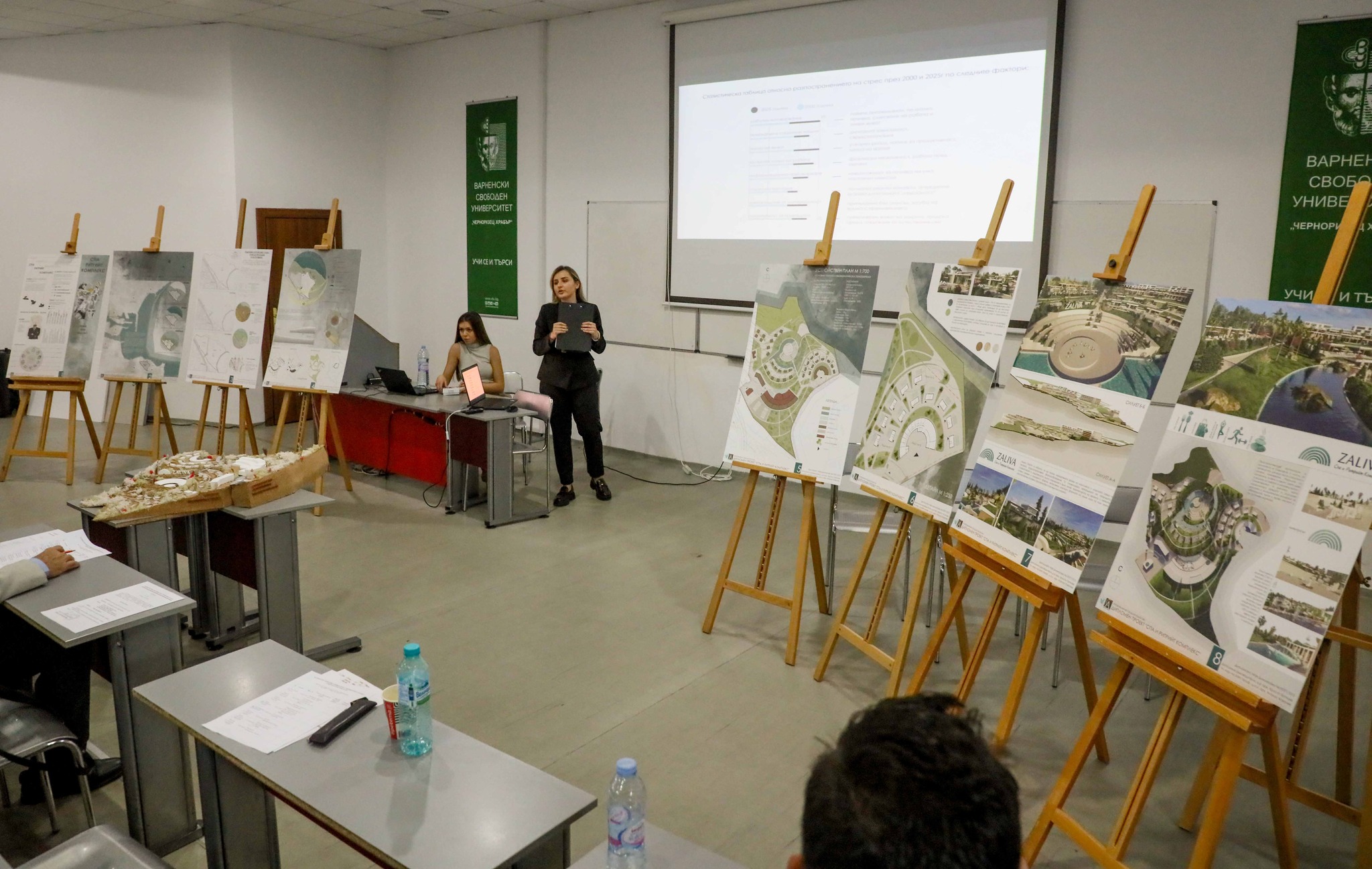
Eight graduating students of the Architecture major at Varna Free University “Chernorizets Hrabar” successfully defended their diploma projects and received the title of architect. Their ideas demonstrate maturity, creative scale and sensitivity to the urban and natural environment, commented the members of the state examination committee.
With excellent grades are Maya Dimitrova, Trayana Yordanova, Nikol Kodeva, Nadezhda Zafirova and Doroteya Nikolaeva.
Maya Dimitrova presented the project “Spa and Retreat Complex “Zaliva” in Galata. The diploma thesis was developed under the guidance of Corr. Mem. Arch. Atanas Kovachev, D.Sc. and Arch. Hristo Topchiev. The concept impressed the committee with the harmonious interaction between architecture and nature, with the skillful incorporation of water into the complex and the attention to detail. In the words of Arch. Marin Velchev said the project is at a "very high level", and Prof. Alexander Slaev emphasised "the high culture of presentation and the emotional maturity of the author".
Trayana Yordanova defended her thesis on the topic “Centre for Fine and Applied Arts” in the Karantina area, under the supervision of Sen. Assist. Prof. Arch. Boryana Nozharova, PhD and Arch. Radost Raynovska, PhD. The project inspired by the historical past of the terrain – a military unit with bunkers and trenches – offers a contemporary space for culture, memory and creativity. The author conducted a survey among one hundred people, with her focus on overcoming the “moral and institutional neglect of art”.
Nadezhda Zafirova presented her thesis on the topic “College of Oceanology” – a public building designed as a space for training, scientific activity and exchange between researchers, teachers and students. The project was developed under the supervision of Sen. Assist. Prof. Arch. Boryana Nozharova, PhD and Arch. Radost Raynovska, PhD. The concept impressed the committee with its functional layout and combination of a modern architectural vision with clean volumes and a visual connection to the sea.
Nikol Kodeva presented an urban planning solution for the area of the Television Tower in Varna. Under the guidance of Corr. Mem. Arch. Atanas Kovachev, D.Sc. and Arch. Hristo Topchiev, she developed a concept for creating a multifunctional urban area with a balanced combination of development, green spaces and public accessibility. The committee assessed the presentation as professional and well-argued, with clearly expressed thinking in terms of scale and attention to detail.
Doroteya Nikolaeva presented "Organizational Concept for a Student City - Vrana". She worked under the scientific supervision of Corr. Mem. Arch. Atanas Kovachev, D.Sc.. "The choice of the topic was provoked by my personal commitment to the student community - as a representative of the National Representation of Student Councils I was responsible for student residential areas in Varna. My second motive is related to the lack of sufficient youth spaces in our city" the student commented. The project offers a vision for a modern student city, located on the southern shore of Varna Lake, in the "Malka Chaika" area. The proposal covers an area of 1,780,000 sq m, divided into three main zones - campus, science and business zone and sports and recreation zone. In the western part are campuses of the six Varna universities, each of which includes student residential areas, study centres and recreation areas. The concept also includes a district administration, a library, a primary school and a kindergarten. To the east, the project develops a science and business core with laboratories and office buildings, as well as a hospital complex with a university multidisciplinary and children's hospital. The sports area includes a sports hall, outdoor facilities and park spaces. An important emphasis is on transport security - pedestrian and bicycle paths, underground parking lot. "Varna needs such a university campus - with its own atmosphere, a gallery of parks and a living connection with the sea," Prof. Atanas Kovachev noted.
"In young architects, we see not only professional skills, but also an attitude towards the future of the urban environment - a combination of aesthetics, functionality and humanity," emphasised the teachers from the department.
